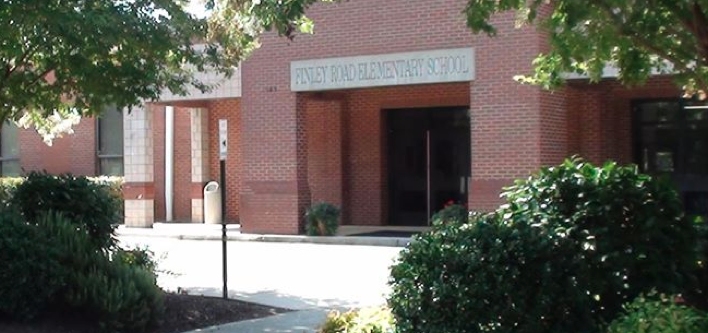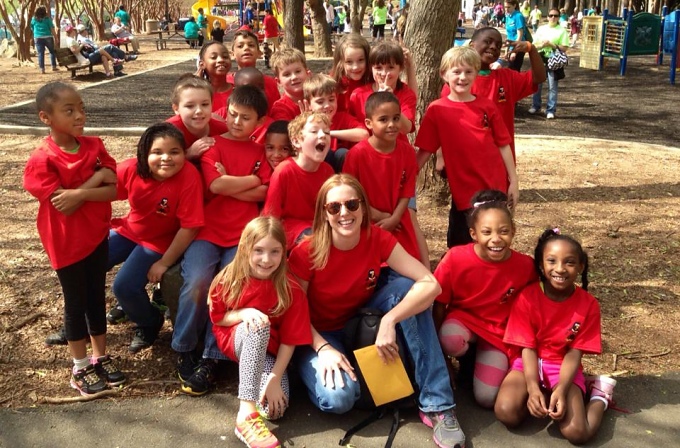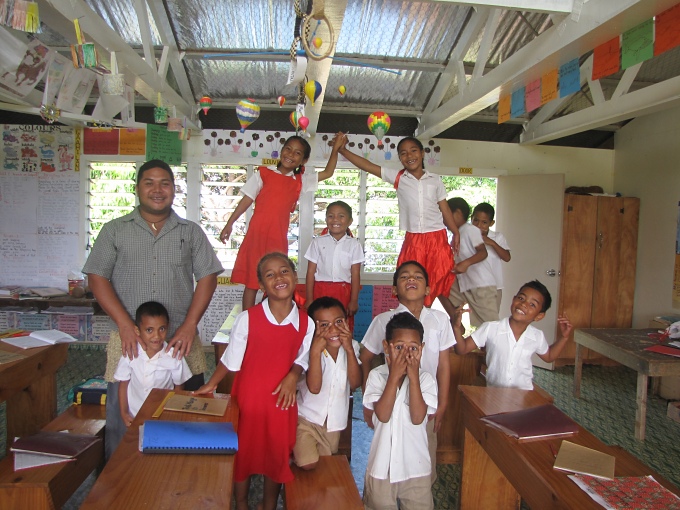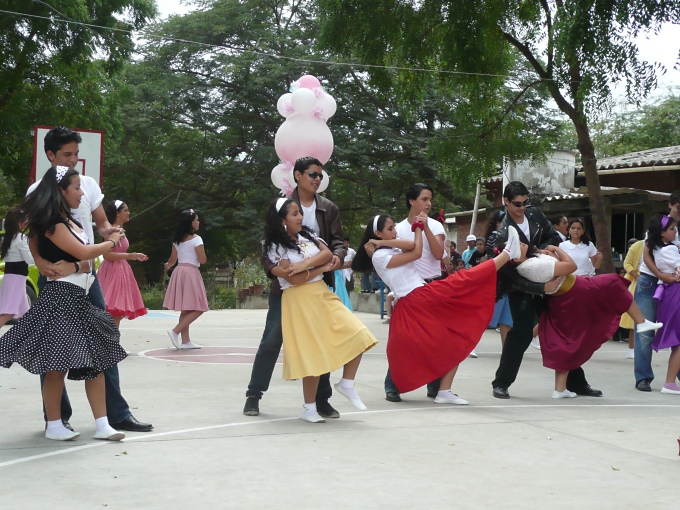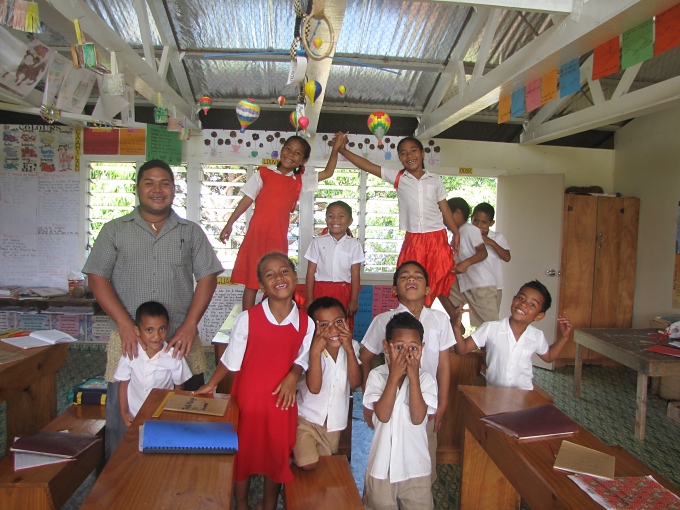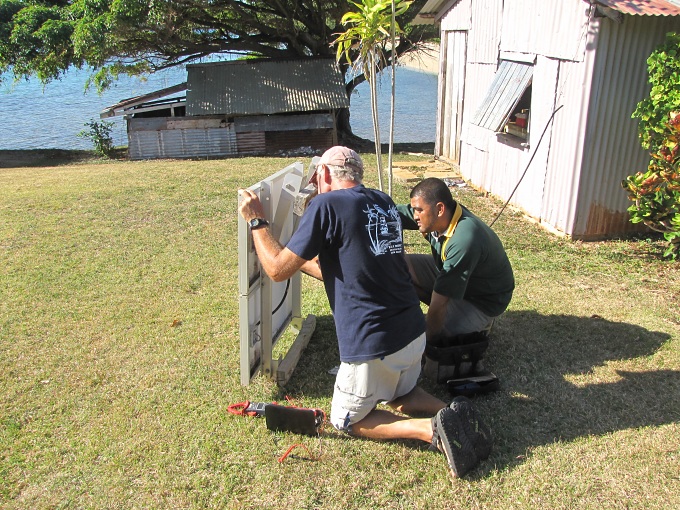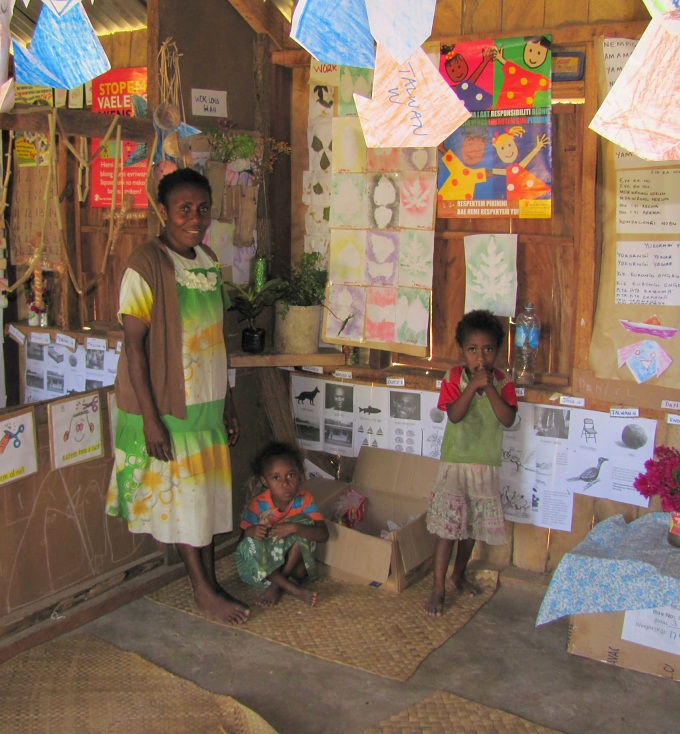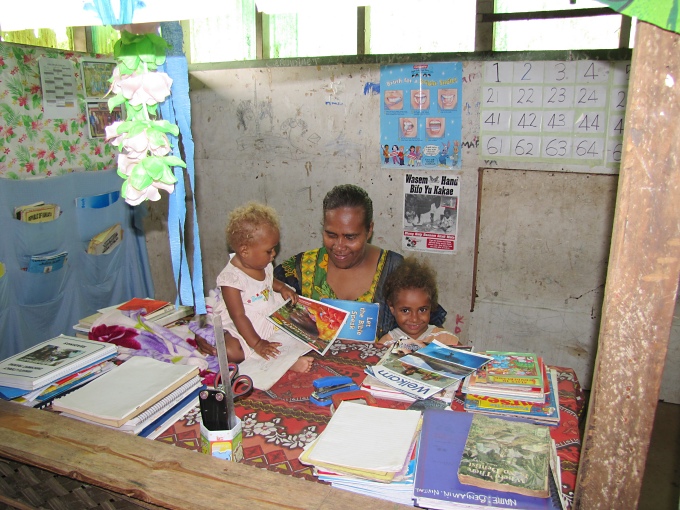Long Distance Learning
/We had a fun and interesting experience the other night. We went back to school … via Skype … to Finley Road Elementary in Rock Hill, South Carolina. Nearly 20 years ago, we met Carrie Burandt Gaffney when she came with her mom and dad to Christmas parties at our home and family events where we worked. She was outgoing and liked to sing with me (both excellent qualities). We kept track of her via her dad, Jeff, when she graduated college and got married. Then, last December we received an email from her directly.
Carrie's a second-grade teacher in Rock Hill, South Carolina now. She's all grown up and married now and just got her M.Ed in Education Technology. She wanted us to talk to her kids about living aboard a boat and sailing around the world. What a fun exchange, we thought, and we were kind of chuffed that she'd think of us to talk to her kids.
There were a few technical difficulties … like there's a 12-hour time difference between Rock Hill, SC and Bunbury, Western Australia which means it would be dark here when we scheduled the presentation and trying to figure out a time we'd have reliable internet on the boat. We sorted everything out. We sent pictures of Cups, mostly inside views, to give the kids a feel for what living aboard a boat might be like. We talked about the different names for rooms on a boat … it's not a kitchen; it's a galley, for instance. We talked about living on the water and how things rock and roll sometimes and need to be lashed down when we sail.
We spent quite a bit of time talking about the schools we've visited throughout our travels ... in Panama and Tonga and Vanuatu. Though the schoolrooms may look different, the kids were very much the same. There are some universal truths … kids prefer recess to practicing math skills, it's hard to pay attention sometimes when it's beautiful outside and teachers are pretty special people who spend so much time and effort helping our kids to learn. Carrie felt that this topic fit in well with her class' continuous Social Studies project about realizing similarities and celebrating the differences between different groups of people.
Carrie's kids are particularly lucky. They each have their own tablets and lots of learning aids available to them. I asked Carrie how she felt technology helped her kids. She was quick to answer. “... technology is incredible (not on its own) but because of what it allows my students to do. We can collaborate with one another, as well as people from around the globe. Students can show their learning in ways that are relevant to them. It allows me to differentiate assignments to help each student to learn in ways which are appropriate for them. It also adds an element of creativity that was just not practical before in the classroom. An added bonus side effect is that it really brings parents into the classroom learning environment in authentic ways. They can literally see their child's learning in real-time through blogs and the website.”
The kids were animated and interested and asked lots of good questions. In fact, we were surprised they were so very attentive and picked up on so many practical issues that might cause a problem living abaord. “How do you wash your clothes?” “Do you sail right through storms or do you go around them?” “What would happen if you got a hole in your boat?” They had their thinking caps on.
Carrie commented that “This all goes along with my teaching philosophy because I want my students to have as many real world learning experiences as I can possibly give them. I want them to leave my classroom as better people - to me, this is just as important as them learning to read and solve math problems. Plus, I want learning to be FUN! There's no rule that says quality learning needs to be boring. I love my job, and I want my students to love coming each day.” Please note that this does not sound like Miss Thompson, my third grade teacher, who majored in Boredom 101 and thwacked a thick ruler on the heads of those kids who dozed off in class while trying to memorize multiplication tables.
We're hoping the kids enjoyed themselves, because we certainly did. We received much more than we gave … the energy, the enthusiasm and the candor of 7 and 8 year old kids is contagious. I think we're going to do this again.


